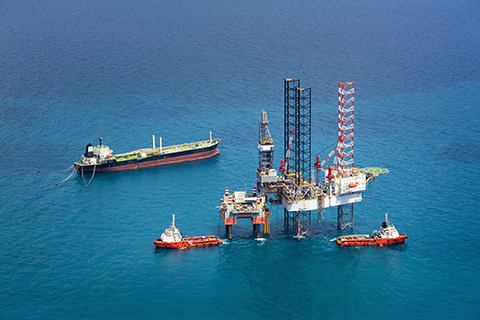In the current era, the mining industry is looking to tap into seabed resources, which have become a veritable gold rush.
This is because the demand for minerals used in various products has increased considerably. Elements such as cobalt, nickel, lithium, copper, and manganese are found in small rocks called nodules, which have been discovered on the seabed. These nodules exceed existing terrestrial reserves and are used in the manufacture of computers, tablets, phones, electric batteries, wind turbines, and solar panels.
Seabed mining is still not regulated at the international level, which has caused controversy. Although there is interest in commercially exploiting these resources, there is also concern about potential environmental impacts. Environmentalists, scientists, companies, and some states have expressed their resistance to this activity and are seeking more information on its possible negative effects on the environment.
Some argue that seabed mining could be a realistic alternative to avoid reliance on landmines controlled by other countries. However, environmentalists warn of the risks involved, such as the destruction of marine biodiversity and irreversible damage to the ecosystem.
Petitions to delay marine mining regulation
This year is crucial as it is expected that a regulation will be approved that will allow the commercial exploitation of seabed minerals. Environmental groups, companies, and States are calling for a moratorium until the impact of this activity is better understood. Major companies such as Google, Samsung, Volvo, and BMW, as well as several countries, including Spain, support this petition. The European Parliament has also passed a resolution for a pause at the international level. In addition, those affected by the fishery are also concerned about the potential negative impacts of underwater mining on the marine environment and fisheries.
The exploitation of the seabed raises questions about the equity and distribution of profits. Despite the economic benefits for the International Seabed Authority, which is in charge of regulating this activity, the distribution of profits raises additional questions about how they will be shared and whether they will benefit all countries equally. There is a debate as to whether these resources, being considered the common heritage of mankind, should remain unexploited or whether mining can benefit everyone.

In summary, seabed mining has aroused great interest in the industry due to the increasing demand for minerals. However, this activity is the subject of debate and is not yet regulated at the international level. While awaiting such regulation, questions are being raised about potential environmental impacts, equity in the distribution of profits, and the preservation of the seabed as the common heritage of mankind.
Continue your professional training
In the 21st century, deep sea mining has generated controversy due to its potential environmental impacts. In view of this reality, there is a need to train experts capable of efficiently managing natural resources and, at the same time, assessing and mitigating the environmental impact of industrial activities. Lastly, the Universidad Internacional Iberoamericana (International Iberoamerican University, UNIB) offers the Master in Environmental Management and Audits.
This program aims to train high-level professionals in the field of environmental management, providing tools and knowledge to evaluate and minimize the environmental impact of modern industries. It will not only equip students to address the challenges and reduce the impact of underwater mining on the seabed but also prepare them to understand and intervene in other environmental contexts.
If you are passionate about protecting and conserving our natural resources, and you are interested in acquiring practical and theoretical tools that are fundamental for responsible environmental management, the Master in Environmental Management and Audits is the perfect choice. Join our program and make a difference in protecting the environment and a sustainable future for all!
Source: Mining seeks to conquer the seabed: this century’s gold rush

